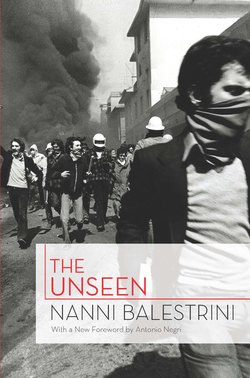Читать книгу The Unseen - Nanni Balestrini - Страница 9
На сайте Литреса книга снята с продажи.
ОглавлениеTranslator’s Note
The Unseen is anchored in the social movements of Italy in the second half of the 1970s and, especially, in the rise of Autonomy, a widespread network of extra-parliamentary alliances involving school and university students, the young unemployed and various groupings of the socially marginalized and economically disenfranchized (the emarginati).
Autonomy’s political origins can be traced back to the factory strikes and occupations of 1969’s ‘Hot Autumn’, but a number of immediate issues spurred its growth: price rises and cuts in public spending, a series of neo-fascist shootings and bomb attacks, rising unemployment, dissatisfaction with the education system. This was also the time of the Communist Party’s attempted ‘historic compromise’, the move towards a hoped-for partnership with the ruling Christian Democracts. The party’s tacit support for the government’s economic policies and refusal to oppose legislation drastically extending police powers were the object of fierce criticism from the left.
Protests reached their height in 1977, when street demonstrations and violent, often armed, clashes with the police occurred almost daily in some Italian cities. It was also a year of explosive cultural opposition – through alternative radio stations and magazines, and through the theatrically staged actions of the ‘Metropolitan Indians’. An outbreak of posters and slogans re-invoked the surreal challenges of 1968.
As divisions and tensions multiplied within Autonomy, especially over the question of organized violence, terrorism escalated. The wave of repression which followed made few distinctions. Mass arrests, guilt-by-association and the imprisonment, frequently without trial, of hundreds of people, had profound consequences for an entire generation.
Of the many prison revolts during this period, the one whose events are most closely paralleled in the novel took place at Trani, near Bari, in December 1980.
Translation of the protagonists’ names in the text would have resulted in excessive artificiality. So that their literal meanings are not altogether lost, I offer the following glossary:
| Aglio | Garlic |
| China | Quinine |
| Cocco | Coconut |
| Cotogno | Quince |
| Donnola | Weasel |
| Gelso | Mulberry |
| Lauro | Bay |
| Lince | Lynx |
| Lupino | Lupin |
| Malva | Mallow |
| Mastino | Mastiff |
| Menta | Mint |
| Mora | Bramble |
| Nocciola | Hazelnut |
| Ortica | Nettle |
| Pepe | Pepper |
| Scilla | Squill |
| Spinone | Griffon |
| Talpac | Mole |
| Valeriana | Valerian |
| Verbena | Vervain |
